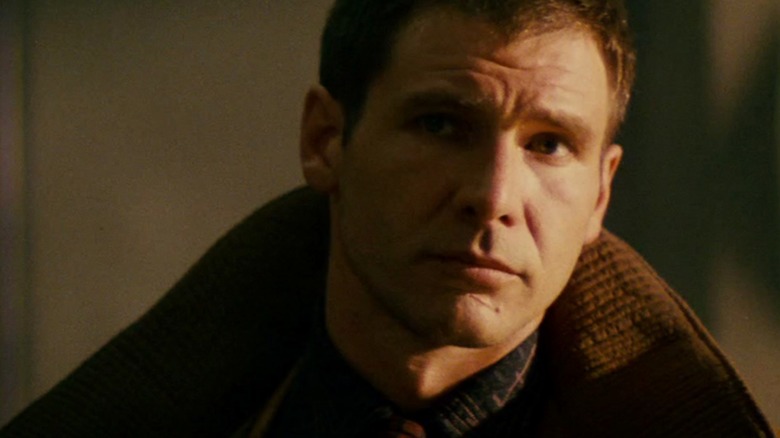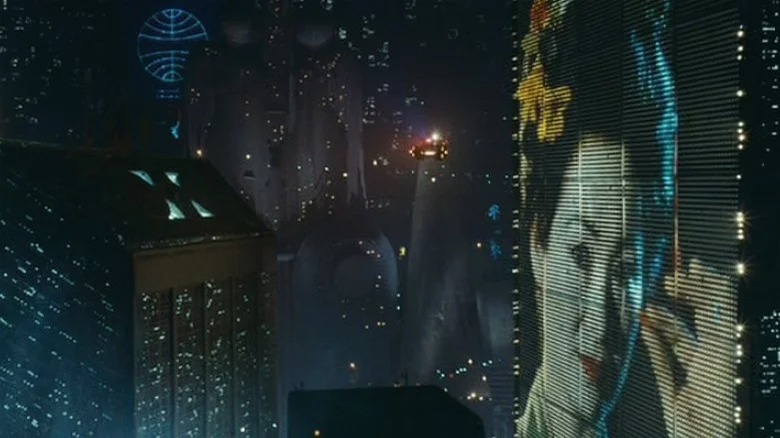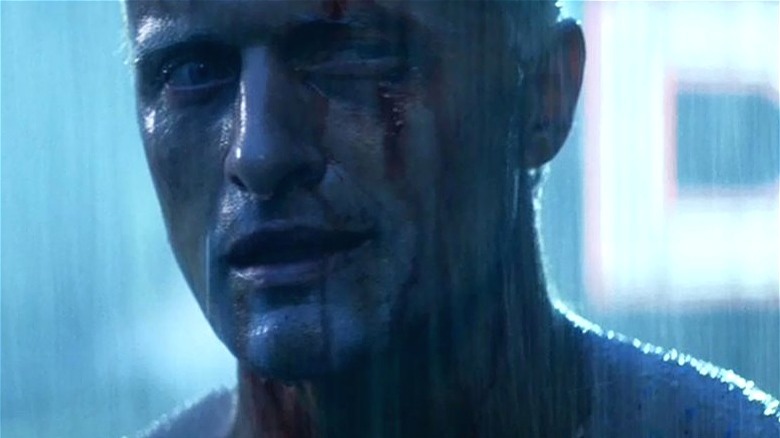Blade Runner's Journey From Book To Screen Technically Started With Martin Scorsese
Science fiction writer Philip K. Dick wrote numerous novels and short stories that question the nature of reality and human perception by focusing on characters in capitalistic, dystopian futures. His 1968 novel, "Do Androids Dream of Electric Sheep?" is one of those works — it follows a bounty hunter named Rick Deckard who is assigned to "retire" six androids who escaped to off-world colonies. Ridley Scott eventually adapted this novel for the big screen with 1982's "Blade Runner," which retained some of the book's themes despite veering away from much of the plot in Dick's original work.
The book-to-screen journey for "Electric Sheep" was a long one, laden with studio refusals and rotating scripts because the book's premise was either heavily altered or too ambitious to be realized on screen. Scott also wasn't the only filmmaker who tried to adapt the story — years before his efforts, a young Martin Scorsese was heavily interested in optioning Dick's novel.
Scorsese was right to see "Do Androids Dream of Electric Sheep?" potential — no matter how layered the story was in terms of themes, it made for a solid cinematic project about the nature of humanity in a dystopian setting. The book, and by extension, "Blade Runner," birthed and influenced the cyberpunk movement and aesthetic, opening up conversions about Artificial Intelligence and how humans interact with man-made constructs.
Let's look into the journey that "Electric Sheep" underwent, how Scorsese was involved with the project for a while, and how it eventually ended up being the Ridley Scott film we know and love.
When Scorsese dreamed of electric sheep
Paul M. Sammon's "Future Noir: The Making of Blade Runner" chronicles the journey of the novel's adaptation to film, explaining the challenges of bringing such visually arresting, thematically dense subject matter to life. Philip K. Dick's novel clearly made some waves, as studios showed interest in optioning the material as early as 1969. Martin Scorsese, who was fresh off the release of his first feature-length film, "Who's That Knocking at My Door," was one of those invested in Dick's novel along with film critic/screenwriter Jay Cocks, who later went on to collaborate with Scorsese on films like "The Age of Innocence" and "Gangs of New York."
Per Sammon's book, Scorsese and Cocks were "struck by [the novel's] visual and moral landscapes" and were geared up for partnering on this passion project. Despite their interest in involvement, however, Scorsese and Cocks never reached the optioning stage. Instead, Scorsese diverted his attention to his other projects and eventually made 1973's "Mean Streets," which functioned as a career breakthrough. Meanwhile, Cocks went on to co-write the script for Kathryn Bigelow's "Strange Days," which was greatly inspired by "Blade Runner" and dealt with themes such as voyeurism aided by VR headsets that replay real, traumatic events.
As for "Electric Sheep," an adaptation started to take shape in 1974 when the novel was finally optioned by film producer Herb Jaffe and his son, Robert Jaffe, wrote a screenplay. Unfortunately, Dick hated it.
A tough, rocky road to salvation
Philip K. Dick, who is known to express his sentiments rather bluntly, was more than displeased with Robert Jaffe's rendition of his novel. Although Dick was not surprised by the simplified version of the screenplay, as he was aware of some aspects of the novel would not translate well on screen, he was aghast that the story was modeled as a comedy spoof instead of a hardboiled noir. Jaffe had flown to meet with Dick, and the author's first words to the screenwriter were, "Shall I beat you up here at the airport, or shall I beat you up back at my apartment?" A hilarious yet terrifying greeting, given the situation.
Dick and Jaffe spent a considerable amount of time discussing possible directions for the new project, however, and the two decided to meet halfway and even renew their option for the book. These efforts were also in vain, as the Jaffes eventually decided to not go forward with the project. The good news? Hampton Fancher, who co-wrote both "Blade Runner" and "Blade Runner 2049," expressed his interest in optioning the book, which ended up being the basis for Ridley Scott's "Blade Runner," a film that had a great impact on sci-fi cinema.


